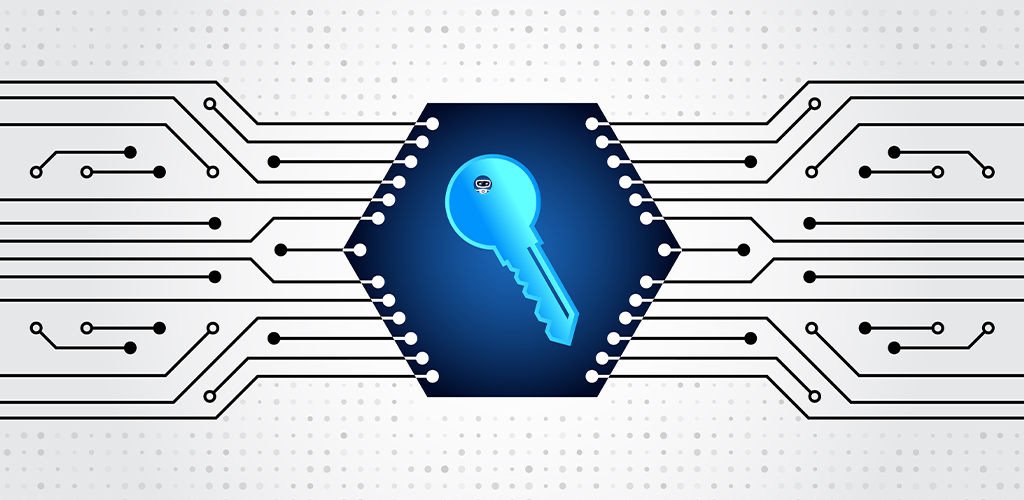May 27, 2021
What is Encryption and How Does it Power Your VPN?
Posted by kevin

A VPN, or virtual private network, is a digital tool that keeps users private and anonymous online. The market for them includes a wide variety of VPNs, many of which offer different features. Despite the range of features, their core function always remains the same; to encrypt the activity of their users. But what exactly is encryption, and how does it work?
- What is encryption?
- How does it work?
- Which type is best?
What is Encryption?
Today, we mostly associate encrypted content with computers and digital security. However, encryption has been around far longer than computers. Four decades ago, the practice of encryption evolved from the practice of cryptography. Before computers were around, information was transferred in different ways–on paper, and through verbal messages, for example. People wishing to protect what was shared in these messages turned to cryptography to mask their content. That is to say, they wrote their messages in code. These codes could only be cracked by someone who had the key to solving them, or by a skilled codebreaker (the precursor to hackers).
When computers were created and users began sharing messages between them, it quickly became clear that these messages sometimes needed protection as well. Programmers used cryptographic principles to create the practice of encryption, which encodes content in a digital format.
How Does it Work?
Encryption is the process of taking plain text and scrambling it into something unreadable. We call the unreadable version of the text “cipher text.” This process is crucial to good digital privacy. For example, if you send a sensitive email to a work colleague, anyone who happens to be watching can see the content of that email if it isn’t encrypted. However, with encryption, only you (the sender) and your colleague (the recipient) will be able to read what was written in the email. This is because your devices have been granted “encryption keys” for this message. These keys allow you to scramble and unscramble the content.
Encryption is also what powers VPN services. A VPN offers users a personal, encrypted computer network. When active, all of your online activity is routed through an encrypted “tunnel,” so to speak. This prevents anyone from accessing your activity without your authorization.
Which Type is Best?
In most cases, you don’t have a choice of the type of encryption you use. The websites you visit have their own encryption built in…or not. Because websites usually don’t give you a choice of the level of secure encryption applied to your messages and activity, it’s a good idea to add your own layer, with a VPN. With an active VPN connection, all of your online activity will be routed through a layer of secure encryption. This keeps it and you safe from prying eyes.
However, not all VPNs are of the same quality. Some of them, especially free offerings, use sub-par security standards. This happens for many reasons. Sometimes, they’re easier to integrate into the platform. Sometimes they’re cheaper to use and maintain. In some cases, a VPN may have even been created before better security methods were introduced and the creators simply don’t won’t to go through the hassle of modernizing.
Because of this, anyone in the market for a VPN should look for one with the AES 256-bit encryption protocol. Currently, it’s the strongest level of security a virtual private network can offer. It’s also the best for full protection online.
Conclusion
Without encryption, anyone online could see everything online; that includes private messages, photos, banking details, passwords, and more. However, stock encryption protocols employed by everyday websites might not be strong enough to properly protect you. You can enhance your encryption online by using a VPN, like HotBot VPN. You can see how our services protect you here.
Posted by kevin
More Blog Posts
February 14, 2023
How the Investigatory Powers Act Impacts Citizen Privacy
In 2016, the United Kingdom passed the Investigatory Powers Act or IP Act, into law. This act empowered the government and related agencies to access and collect citizen data, without consent. Critics immediately slammed the new law. The media dubbed it the “Snoopers’ Charter.” Meanwhile, Edward Snowden described the act as “the most extreme surveillance […] Read moreFebruary 14, 2023
Review: qBittorrent Torrent Client
If you plan on torrenting files, you need a client with which to do so. There are dozens on the market, some paid, some free. Others are feature-heavy while some have just the basics. A few are recent additions to the market while others have been around nearly as long as torrenting. The qBittorrent torrent […] Read moreFebruary 14, 2023

